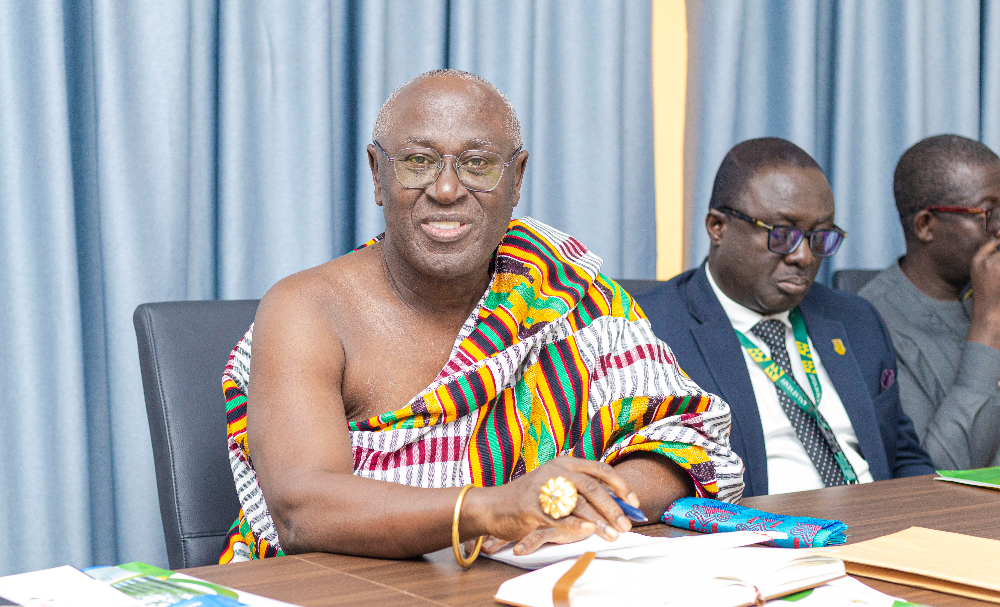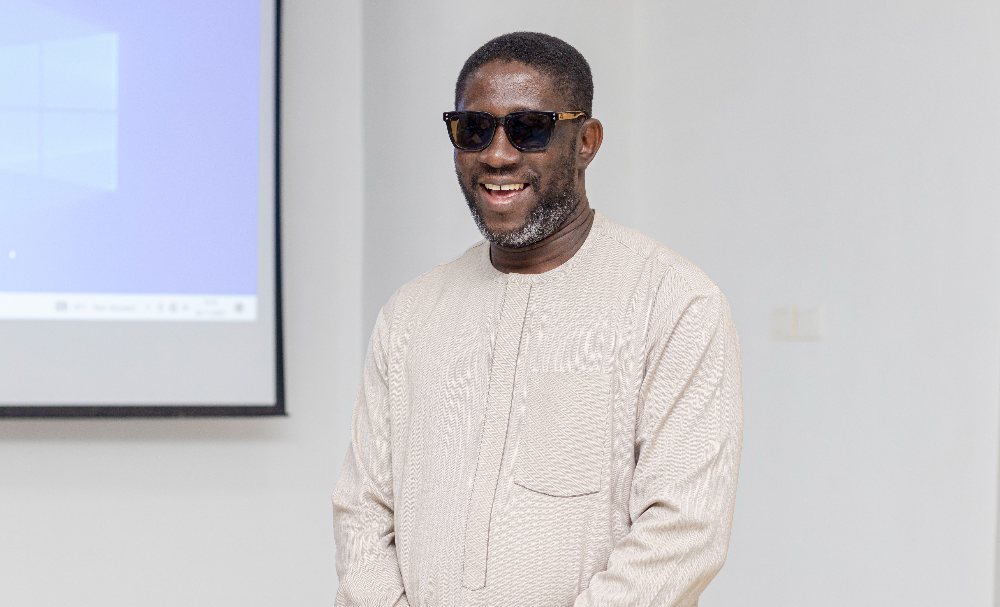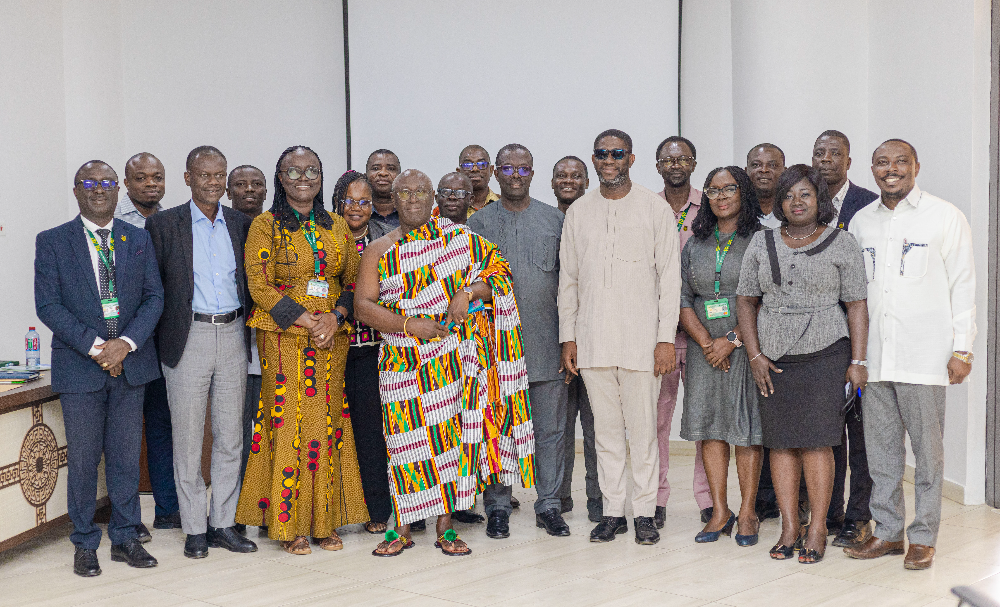The School of Graduate Studies (SGS) has been tasked to elevate the quality of its research to achieve global impact.

The Chairman of the Governing Council of the Kwame Nkrumah University of Science and Technology (KNUST), Kumasi, Akyamfour Asafo Boakye Agyemang-Bonsu, emphasized the strategic adoption of emerging technologies such as Artificial Intelligence (AI) and called for a concerted effort to ensure that research addresses pressing local and global issues.
Speaking during his working visit to the School, Akyamfour Agyemang-Bonsu cautioned against publishing in predatory journals, especially as MPhil and PhD students are encouraged to publish before graduation.
He highlighted the need for a dedicated SGS Research Excellence Fund and called for strengthened collaboration between the School and the Office of Grants and Research (OGR) for interdisciplinary research seed grants.
“We need to intensify our fundraising efforts and diversify the sources of support for these strategies,” he noted. “We must also strengthen our strategic partnerships; there are so many good examples here in Ghana and beyond that we can learn from.”
The Council Chair further urged the School to work on research that supports cultural knowledge systems, particularly Asante cultural studies, and to take deliberate steps in building postgraduate students’ capacity for management roles.
“We need a conscious succession plan across all the Colleges. We will phase out eventually, but who takes over matters,” he stated.
To ensure sustainable impact, he proposed the creation of an international advisory board for the School and called on SGS to engage alumni to support graduate students and research initiatives.
He also proposed institutionalizing research themes such as climate change, green hydrogen, and AI to promote intercollegiate collaboration.

Professor Michael Poku-Boansi, Director of the School of Graduate Studies, shared the school’s commitment to improving international student experiences and expanding research funding.
He mentioned a new policy requiring PhD students to submit policy briefs as part of their thesis submission, and a revamped system for fee collection.
Prof. Poku-Boansi also noted ongoing collaborations with departments to highlight research breakthroughs and generate support for graduate education.
Meanwhile, some board members suggested grooming undergraduate students through to the PhD level to retain talent within the institution.
Vice-Chancellor Professor (Mrs.) Rita Akosua Dickson underscored the urgency of supporting graduate students to help them contribute meaningfully to institutional development.
“If we’re not intentional and focused about this, we stand to lose our brightest talents, and the outside world stands to gain,” she warned.
Another board member called to consider academic supervision as part of faculty teaching loads to improve the quality and timeliness of graduate research outputs.
| Story by: Emmanuel Kwasi Debrah (URO) | Photos by Emmanuel Offei (URO) | |


















